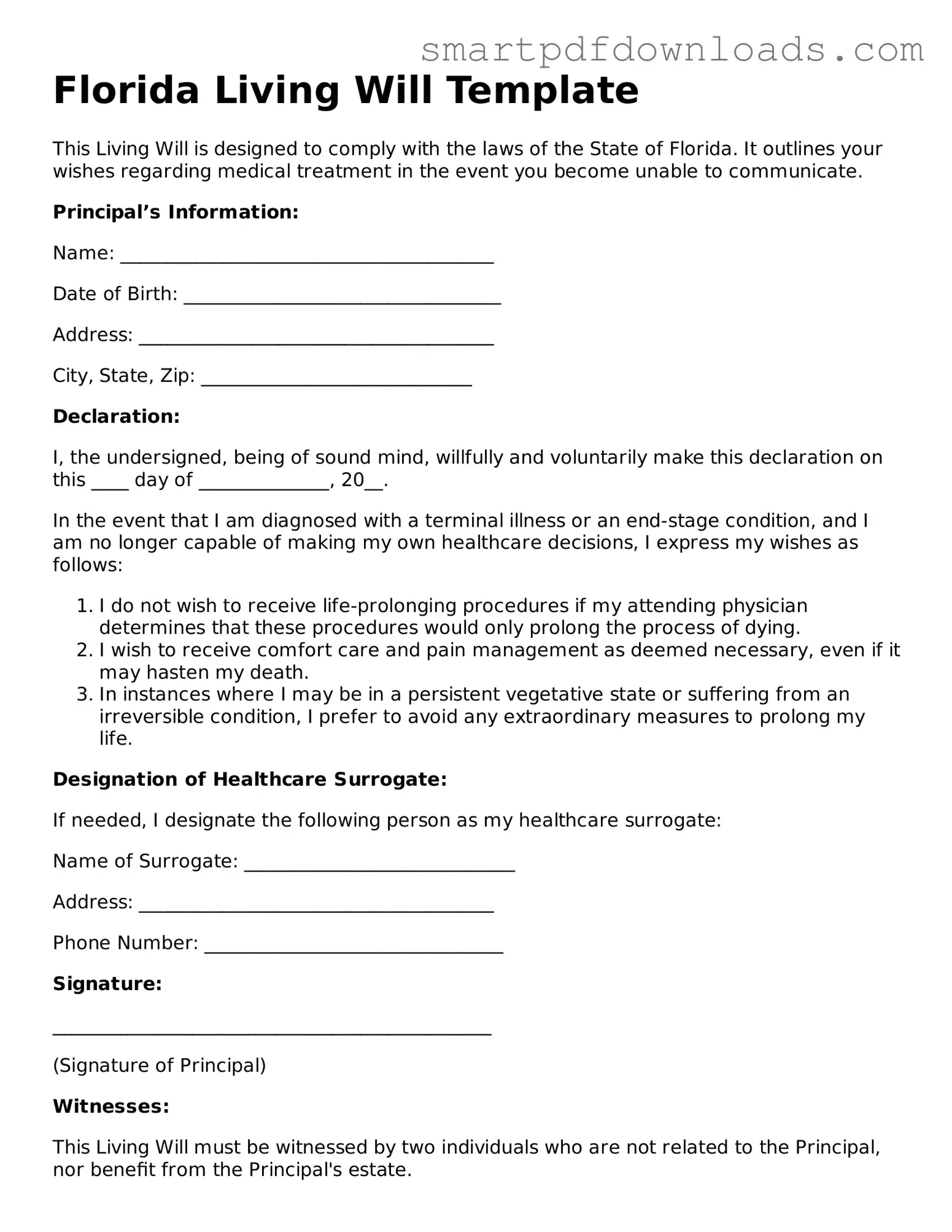Legal Living Will Form for the State of Florida
A Florida Living Will is a legal document that outlines an individual’s preferences for medical treatment in the event they become unable to communicate their wishes. This important form ensures that healthcare providers and loved ones understand a person's desires regarding life-sustaining measures. By completing a Living Will, individuals can take control of their healthcare decisions and provide peace of mind for themselves and their families.
Edit Living Will Online

Legal Living Will Form for the State of Florida
Edit Living Will Online

Edit Living Will Online
or
⇓ PDF File
Finish the form and move on
Edit Living Will online fast, without printing.